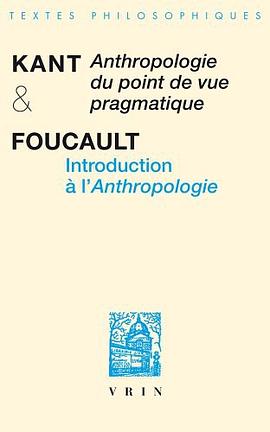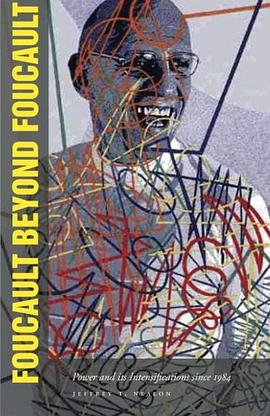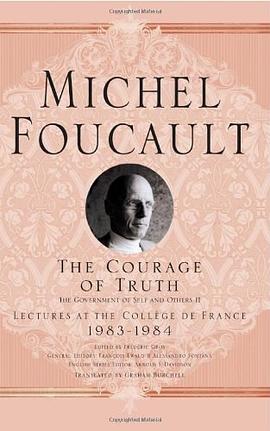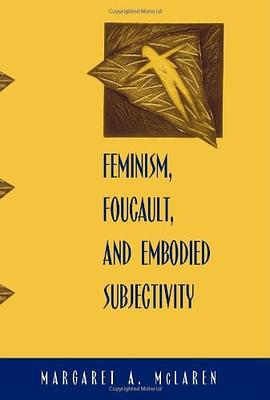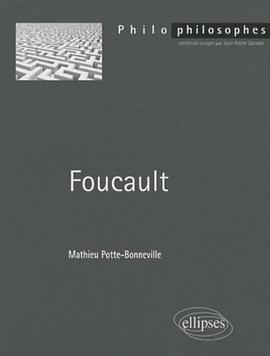

具体描述
The story of the self is big story. For at least a century, the concept of the empirical self has been an important, if not our most central, social structure. The early pragmatists William James, Charles Horton Cooley, and George Herbert Mead, among others, turned away from the transcendental self of philosophical reflection to formulate a concept that extended to every individual's consideration who and what they were. The democratized the self and set the stage for social psychological commentary for decades to come. Now, according to some postmodern voices, the self does not amount to much anymore on the brink of the 21st century. its narrative has fizzled. The self is a mere shadow of what is was, now communicated in evanescent images of identity. The Self We Live By resurrects the big story by taking issue with this account. Holstein and Gubrium have crafted an accessible, comprehensive discussion which traces a different course of developmetn, from the early pragmatists to contemporary constructionist considerations. Glimpses of renewal are located in a new kind of ending, one centered in an institutional landscape of diverse naratives of the self. Not only is there a new story of the self, but we're told that the self, itself, is narratively constructed. Yet, as varied and plentiful as narrative identity has become, it's disciplined by its social practices, which the authors discuss and illustrate in terms of the "everyday technology of self construction." The empirical self, its turns out, has become more complex and varied than its formulators could have ever imagined it to be. The book is written at a level suitable for advanced undergraduates and graduate students in psychology, sociology, and related social sciences.
作者简介
目录信息
读后感
评分
评分
评分
评分
用户评价
我对《The Self We Live By》这本书充满了期待,因为我一直觉得,我们对“自我”的理解,很大程度上是受限于我们现有的认知框架。这本书能否打破这些框架,为我们提供一个全新的视角来审视我们自己?它是否会探讨“叙事自我”的概念,即我们如何通过讲述自己的故事来定义和理解自己,而这些故事又是如何被我们有意或无意地修改和重述的?我希望它能深入分析,那些我们用来描述自己的词汇、隐喻和比喻,是如何在我们内心深处构建起一个“自我”的图景。这本书是否会挑战我们固有的对“稳定自我”的认知,而是提出,我们的自我其实是一个动态的、流动的过程,是在与环境的持续互动中不断生成和演变的?我渴望它能够揭示,我们如何在这种动态的演变中,找到一种内在的连贯性和意义感。读完这本书,我希望自己能够对自己有一个更深刻的理解,能够更加坦然地面对自己内心的矛盾和不确定性,并且能够更加积极地去创造和体验那个“我”所生活的自我。
评分在我眼中,《The Self We Live By》这本书,不仅仅是关于“我是谁”的哲学探讨,更像是对我们日常生活中,那个被我们时时刻刻体验着的“自我”的一次深刻剖析。我很好奇,这本书会如何解释我们对“现在”和“过去”的自我感知之间的差异。我们是否会因为时间的流逝,而对过去的自己产生一种疏离感,又或者,我们是否会怀揣着对未来某个版本的自己的期待?我希望这本书能够从心理学的角度,阐述记忆的非线性特质,以及它如何影响我们对自我连贯性的感知。它是否会探讨“身份认同的危机”,以及在现代社会,人们如何在这种危机中,不断地寻找和定位自己的“真实”自我?我期待它能够提供一些深刻的洞察,让我们理解,我们所“生活”的这个自我,并非一个独立的实体,而是与我们所处的社会环境、人际关系以及我们内心的期望紧密相连的。这本书,我希望它能够帮助我更好地理解,我之所以是我,究竟是哪些因素在起作用,以及我如何能够更主动地去引导和塑造那个正在不断成长的自我。
评分我对《The Self We Live By》这本书充满了好奇,因为它触及了我内心深处最根本的疑问:我们究竟是如何在纷繁复杂的世界中,找到并维系一种属于自己的“存在感”的?我期待这本书能够深入探讨“社会认同”在自我构建中的作用。我们是否在很大程度上,是通过我们所属的群体、我们扮演的角色,以及我们在社会关系中的位置,来定义和理解自己的?这本书是否会分析,当我们脱离了这些社会标签,我们所剩下的“自我”又是什么?我希望它能够揭示,我们所“生活”的这个自我,在多大程度上是与他人相互投射的结果,以及我们如何在这种相互投射中,找到真实的自我。它是否会提出,自我并非一个孤立的存在,而是一个在不断与他人互动、在社会镜像中成像的动态过程?我渴望通过阅读这本书,能够更清晰地认识到,我们与他人的联系,是如何深刻地影响和塑造着我们对自身的理解。
评分《The Self We Live By》这本书,让我对“自我”的理解,不再仅仅局限于内在的心理活动,而是更多地关注它在现实生活中的具体呈现。我希望它能够深入探讨“行动”对于自我认同的重要性。我们是如何通过我们的行为,来向自己和他人展示我们是谁的?这本书是否会分析,那些我们所做的选择,无论大小,是如何为我们的“自我”注入意义和方向的?我期待它能够鼓励我们,更加积极地去采取行动,去尝试新的事物,去承担责任,从而在实践中不断地丰富和发展我们的自我。它是否会强调,那些我们所“生活”的经历,那些我们所付出的努力,才是真正塑造我们“自我”的有力工具?我希望这本书能够激发我们内在的行动力,让我们意识到,我们并非被动地被命运所塑造,而是可以通过积极的参与和投入,去主动地创造和定义我们自己的生命轨迹。
评分当我开始阅读《The Self We Live By》时,我怀着一种既好奇又有些许忐忑的心情。我总觉得,我们每个人内心深处都住着一个“真实”的自我,但现实生活中的种种经历、社会压力、以及我们自己试图扮演的角色,常常让我们与那个真实的自我渐行渐远。这本书的书名,恰恰点出了这种“我们所生活于其中的自我”与“我们所期望或认为应该拥有的自我”之间的张力。我非常期待它能深入探讨这种张力的根源,分析我们是如何在不断变化的外界环境中,塑造并维持一个相对稳定但又不断演进的自我认同的。它会不会从心理学的角度,剖析童年经历、家庭教育、以及社会文化对我们自我认知的影响?抑或是从哲学的高度,探讨关于意识、存在和自由意志的议题,从而让我们理解“我”这个概念的本质?我希望它能提供一些方法,让我们能够辨识出那些不属于我们真实自我的外在标签和期望,并学会如何剥离它们,回归到那个最本真的自我。读这本书,我期待的不仅仅是知识的获得,更是一种内在的觉醒,一种对自我更深层次的理解和接纳,最终能够让我们活得更加自在和真实。
评分《The Self We Live By》这本书的标题,总让我产生一种联想,它或许会揭示出,我们之所以“是”我们,很大程度上是因为我们“生活”在某种特定的自我认知模式中,而这种模式可能并非我们最初的本意。我非常期待它能够深入探讨“自我设限”的力量。我们是如何在不知不觉中,给自己贴上各种标签,并因此限制了我们的潜能和可能性?这本书是否会从社会建构主义的角度,分析我们所处的文化和环境,如何影响甚至塑造了我们对“自我”的定义,并让我们在不知不觉中,沿着既定的轨迹“生活”?我希望它能够为我们提供一种批判性的视角,去审视那些被认为是“理所当然”的自我认知,并鼓励我们去挑战和超越那些可能阻碍我们成长的固有观念。读这本书,我期待能够获得一种解放感,能够意识到,我们所“生活”的这个自我,并非唯一的可能性,而是一个可以被我们积极地重新创造和定义的存在。
评分当我看到《The Self We Live By》这本书时,我脑海中立刻浮现出,我们每个人内心深处都可能存在着一个“理想自我”和“现实自我”之间的巨大鸿沟。我非常期待这本书能够深入探讨这种鸿沟的形成原因,以及我们如何试图去弥合它。它是否会分析,那些社会期望、文化规范,以及我们自身的雄心壮志,是如何导致我们对现实中的自我产生不满,并不断地去追求一个更加完美的“自我”的?我希望它能够提供一些方法,帮助我们认识到,追求“理想自我”的动机,以及这种追求的边界。它是否会强调,接纳和拥抱我们“现实自我”的重要性,并揭示出,真正的成长,或许在于与我们不完美的自我和谐共处?读这本书,我期待的是一种深刻的自我和解,一种能够让我们放下对完美的执念,而是去珍视和热爱那个真实、不完美的、正在不断“生活”着的自我。
评分《The Self We Live By》这本书的书名,让我联想到了一种更为动态和实践性的自我认知方式。我一直认为,“自我”并非一成不变的,而是在我们日常生活的点滴中,通过我们的行为、选择和与世界的互动而不断被塑造和定义。这本书是否会从这个角度切入,探讨我们如何在生活中“实践”我们的自我?例如,我们的工作、爱好、人际关系,甚至是我们如何处理日常生活中的琐碎事务,是否都在不知不觉中,为我们的“自我”增添着不同的色彩和维度?我希望它能够提供一些具体的案例和方法,帮助我们理解,那些看似微不足道的日常行为,如何最终汇聚成我们独特的“自我”体验。它是否会鼓励我们更加有意识地去选择和创造我们想要的生活方式,从而主动地塑造我们所“生活”的这个自我?我期待这本书能够打破那种将自我视为某种固定属性的观点,而是强调自我是一种持续的建构过程,是一种需要我们积极参与和投入的旅程。
评分《The Self We Live By》这本书,仅仅是它的书名,就足以让我驻足思考。我一直对“自我”的构成感到好奇,我们究竟是如何形成我们对自己的认知,又是如何在这个不断变化的世界中,维持着一种连贯性的“我”的感觉?这本书是否会深入探讨那些构成我们自我认知基石的元素?例如,我们的记忆是如何被选择性地存储和提取,从而影响我们对过去经历的解读,进而塑造现在的自我?社会比较,即我们通过与他人对比来定义自己,这种普遍存在的心理机制,在书中又会以何种方式被解读?我期望这本书能够提供一些前沿的研究成果,或许会涉及神经科学、社会心理学甚至认知科学,来解释我们大脑如何处理关于“自我”的信息,以及我们是如何在潜意识层面不断地构建和重塑我们的自我形象的。它是否会揭示,我们所认为的“独立个体”的自我,在多大程度上受到我们所处的社会网络、文化背景和集体意识的影响?我希望这本书能够提供一些深刻的见解,帮助我们理解,我们所“生活”的这个自我,究竟是我们自由意志的产物,还是在各种外在力量的共同作用下,被动形成的?
评分我一直对“自我”这个概念着迷,它如此普遍,又如此难以捉摸。当我偶然在书店瞥见《The Self We Live By》这本书时,它简洁而引人遐思的书名立刻抓住了我的眼球。我拿起它,翻开扉页,一股强烈的预感告诉我,这本书或许能为我一直以来萦绕心头的关于“我是谁”的疑问,带来一些新的视角和深刻的洞见。我期待它能够深入探讨我们是如何构建和体验我们自己的,这个过程是否是客观的,还是仅仅是我们主观感知和记忆的产物?这本书会不会像一个精密的显微镜,解剖我们内心最隐秘的角落,揭示那些塑造我们身份认同的微小但关键的元素?我希望它能带领我进行一场关于内在自我的探索之旅,理解那些在意识层面的“我”和潜意识中的“我”之间是否存在着某种更深层次的联系,以及环境、经历、人际关系如何共同雕刻出我们最终的自我形象。我渴望这本书能够提供一些实用的工具或思考框架,帮助我更好地认识自己,理解自己行为背后的动机,甚至能够更从容地面对和接纳那个不断变化、有时甚至令人困惑的“我”。这本书的封面设计也很有品味,不张扬但充满智慧,仿佛预示着内容也会同样引人入胜。我迫不及待地想开始阅读,希望它能像一位智者,在我迷茫时提供指引,在我自省时给予启发。
评分 评分 评分 评分 评分相关图书
本站所有内容均为互联网搜索引擎提供的公开搜索信息,本站不存储任何数据与内容,任何内容与数据均与本站无关,如有需要请联系相关搜索引擎包括但不限于百度,google,bing,sogou 等
© 2026 book.wenda123.org All Rights Reserved. 图书目录大全 版权所有

